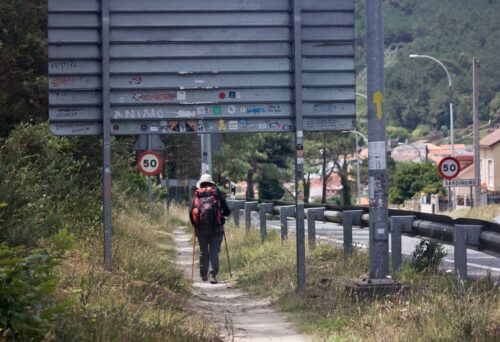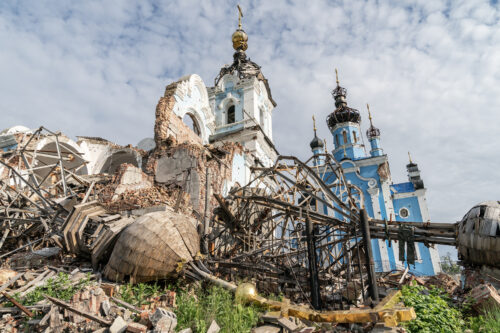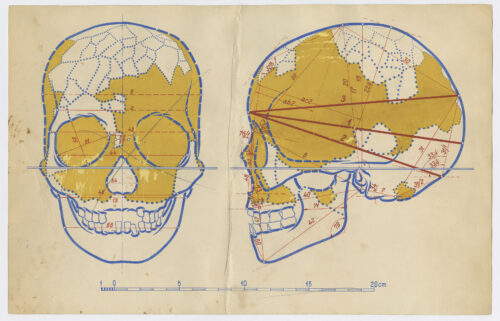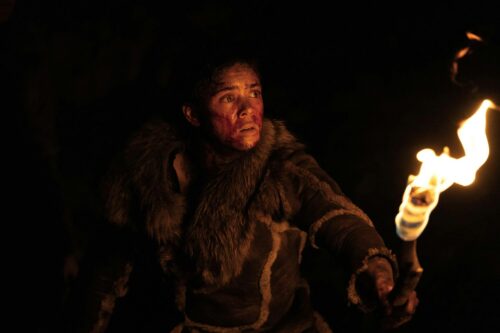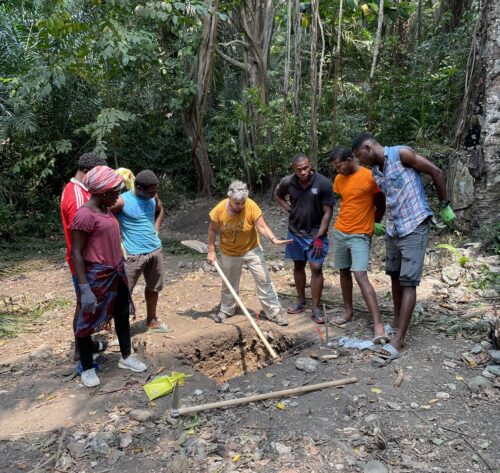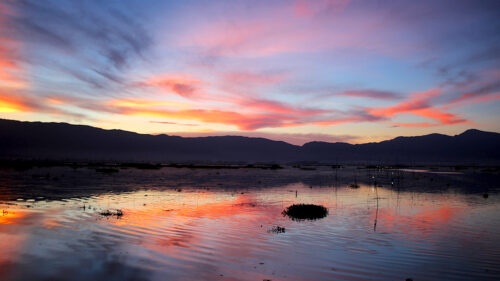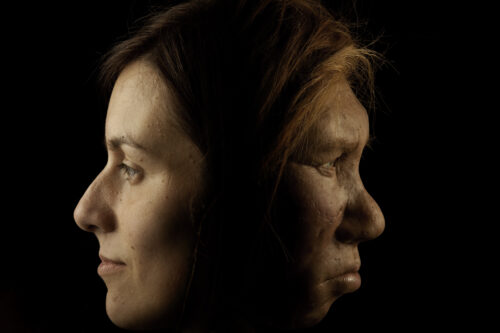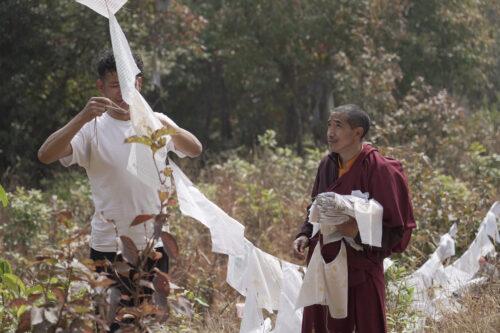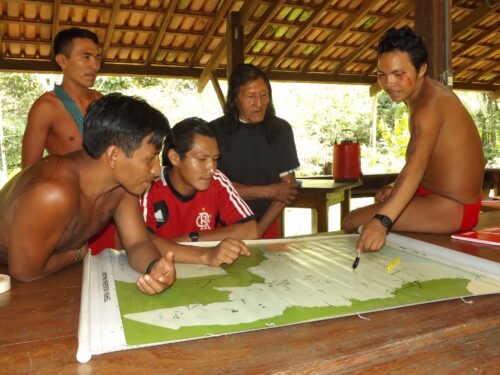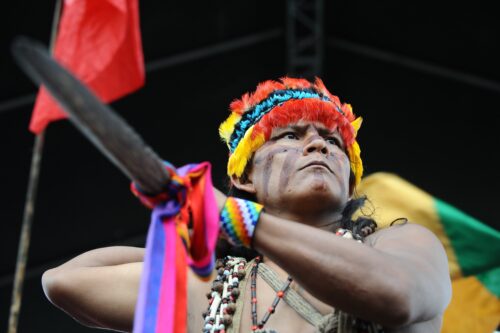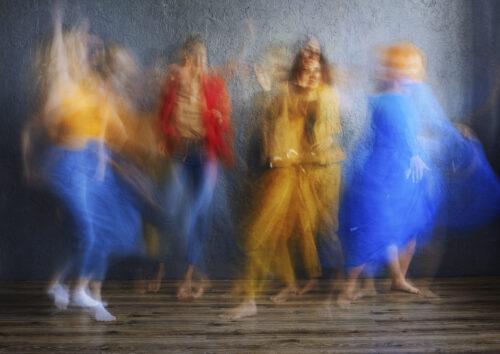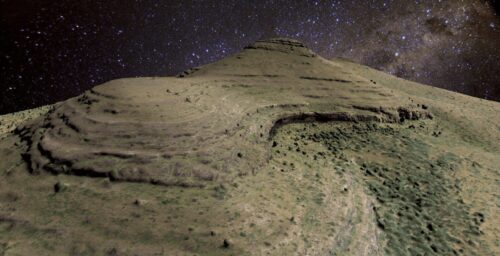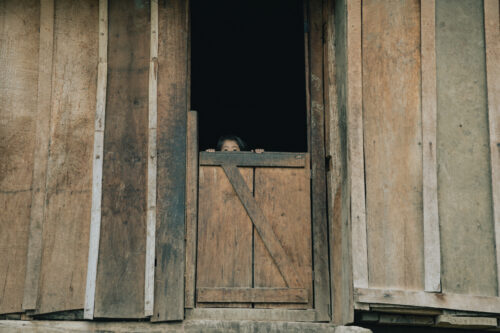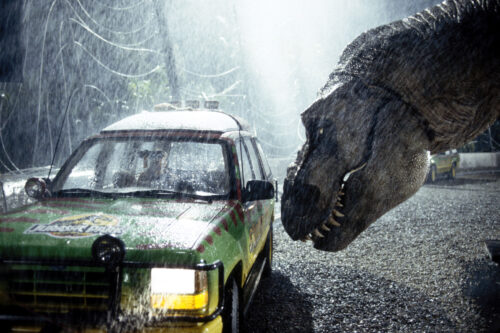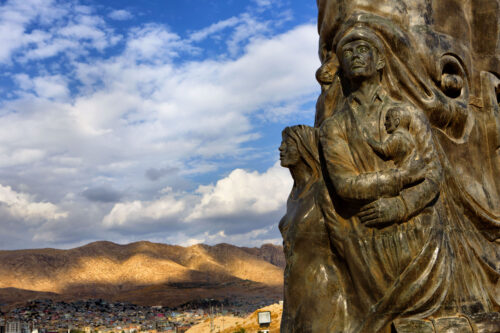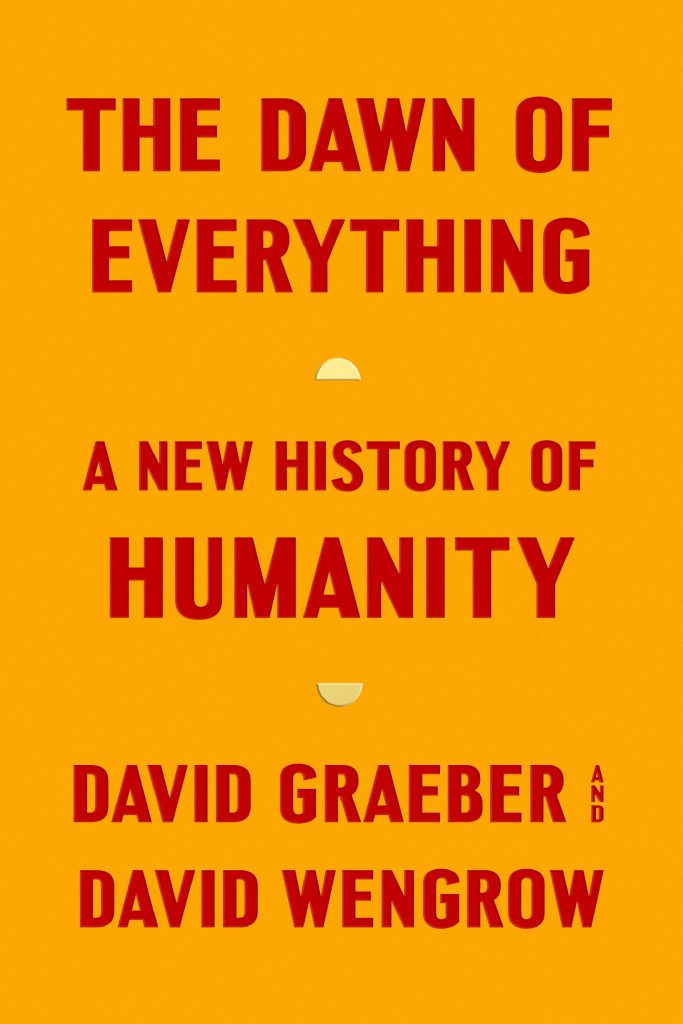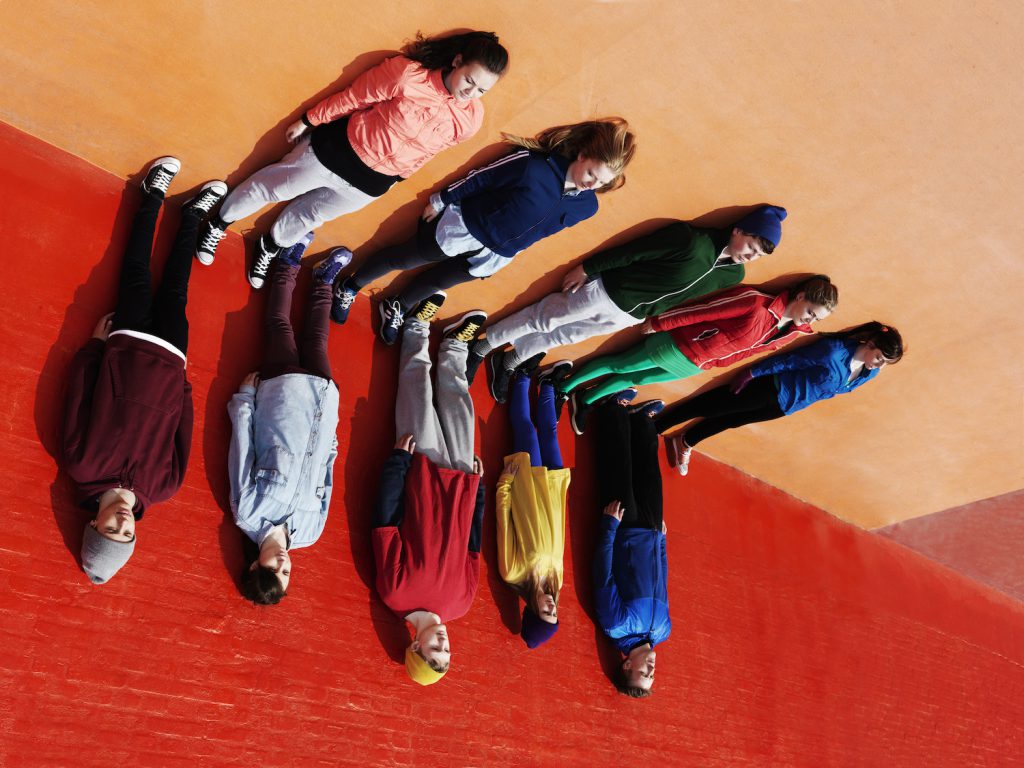Do Things Have to Be This Way?
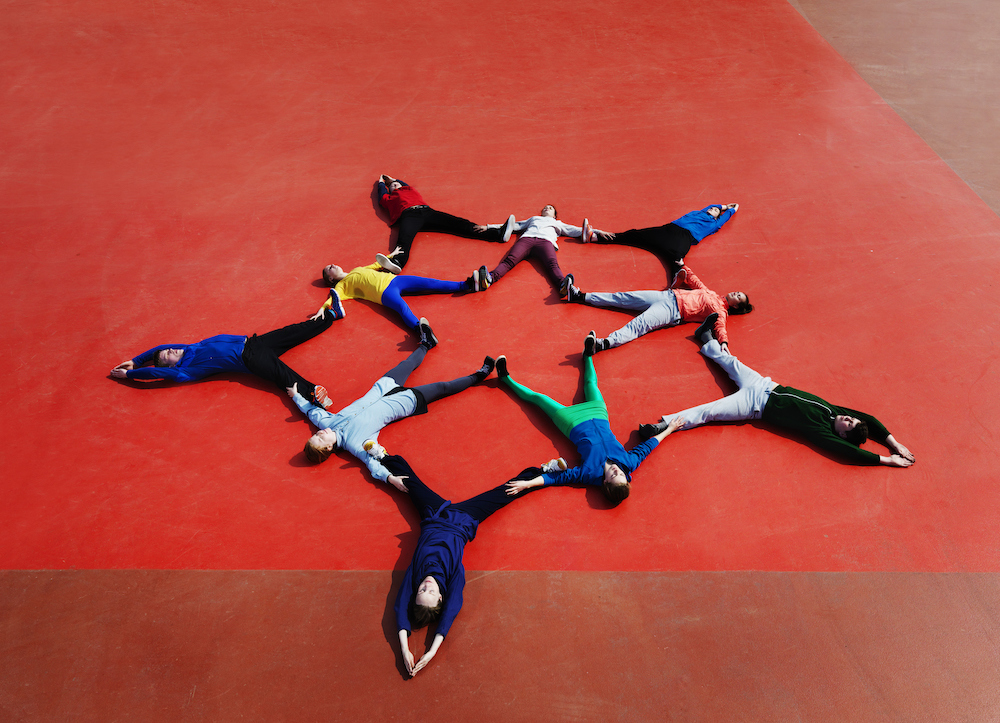
Excerpted from The Dawn of Everything: A New History of Humanity. © 2021 by David Graeber and David Wengrow. Reprinted with permission from Farrar, Straus, and Giroux.
Most of human history is irreparably lost to us. Our species, Homo sapiens, has existed for at least 200,000 years, but for most of that time, we have next to no idea what was happening. In northern Spain, for instance, at the cave of Altamira, paintings and engravings were created over a period of at least 10,000 years, between around 25,000 and 15,000 B.C. Presumably, a lot of dramatic events occurred during this period. We have no way of knowing what most of them were.
This is of little consequence to most people, since most people rarely think about the broad sweep of human history anyway. They don’t have much reason to. Insofar as the question comes up at all, it’s usually when reflecting on why the world seems to be in such a mess and why human beings so often treat one another badly—the reasons for war, greed, exploitation, systematic indifference to others’ suffering. Were we always like that, or did something, at some point, go terribly wrong?
It is basically a theological debate. Essentially, the question is: Are humans innately good or innately evil? But if you think about it, the question, framed in these terms, makes very little sense. “Good” and “evil” are purely human concepts. It would never occur to anyone to argue about whether a fish, or a tree, was good or evil, because “good” and “evil” are concepts humans made up in order to compare ourselves with one another.
Nonetheless, on those occasions when people do reflect on the lessons of ancient history, they almost invariably come back to questions of this kind. We are all familiar with the Christian answer: People once lived in a state of innocence yet were tainted by original sin. We desired to be godlike and have been punished for it; now we live in a fallen state while hoping for future redemption.
Today the popular version of this story is typically some updated variation on Jean-Jacques Rousseau’s A Discourse Upon the Origin and the Foundation of the Inequality Among Mankind, which he wrote in 1754. Once upon a time, the story goes, we were hunter-gatherers, living in a prolonged state of childlike innocence in tiny bands. These bands were egalitarian; they could be for the very reason that they were so small. It was only after the “Agricultural Revolution,” and then still more the rise of cities, that this happy condition came to an end, ushering in “civilization” and “the state”—which also meant the appearance of written literature, science, and philosophy, but at the same time, almost everything bad in human life: patriarchy, standing armies, mass executions, and annoying bureaucrats demanding that we spend much of our lives filling in forms.
Of course, this is a very crude simplification, but it really does seem to be the foundational story that rises to the surface whenever anyone, from industrial psychologists to revolutionary theorists, says something like “but of course human beings spent most of their evolutionary history living in groups of 10 or 20 people,” or “agriculture was perhaps humanity’s worst mistake.” Many popular writers today—including Jared Diamond, Francis Fukuyama, and Yuval Noah Harari—make the argument quite explicitly. The problem is that anyone seeking an alternative to this rather depressing view of history will quickly find that the only one on offer is actually even worse: if not Rousseau, then Thomas Hobbes.
Hobbes’ Leviathan, published in 1651, is in many ways the founding text of modern political theory. It held that, humans being the selfish creatures they are, life in an original State of Nature was in no sense innocent; it must instead have been “solitary, poor, nasty, brutish, and short”— basically, a state of war, with everybody fighting against everybody else. Insofar as there has been any progress from this benighted state of affairs, a Hobbesian would argue, it has been largely due to exactly those repressive mechanisms that Rousseau was complaining about: governments, courts, bureaucracies, police. This view of things has been around for a very long time.
Human society, in this view, is founded on the collective repression of our baser instincts, which becomes all the more necessary when humans are living in large numbers in the same place. The modern-day Hobbesian, then, would argue that, yes, we did live most of our evolutionary history in tiny bands, who could get along mainly because they shared a common interest in the survival of their offspring (“parental investment,” as evolutionary biologists call it). But even these were in no sense founded on equality. There was always, in this version, some “alpha-male” leader. Hierarchy and domination, and cynical self-interest, have always been the basis of human society. It’s just that, collectively, we have learned it’s to our advantage to prioritize our long-term interests over our short-term instincts, or, better, to create laws that force us to confine our worst impulses to socially useful areas like the economy, while forbidding them everywhere else.
As the reader can probably detect from our tone, we don’t much like the choice between these two alternatives. Our objections can be classified into three broad categories. As accounts of the general course of human history, they:
(1) simply aren’t true,
(2) have dire political implications, and
(3) make the past needlessly dull.
The Dawn of Everything is an attempt to begin to tell another, more hopeful, and more interesting story; one which, at the same time, takes better account of what the last few decades of research have taught us. Partly, this is a matter of bringing together evidence that has accumulated in archaeology, anthropology, and kindred disciplines; evidence that points toward a completely new account of how human societies developed over roughly the last 30,000 years. Almost all of this research goes against the familiar narrative, but too often the most remarkable discoveries remain confined to the work of specialists or have to be teased out by reading between the lines of scientific publications.
To give just a sense of how different the emerging picture is: It is clear now that human societies before the advent of farming were not confined to small, egalitarian bands. On the contrary, the world of hunter-gatherers as it existed before the coming of agriculture was one of bold social experiments, resembling a carnival parade of political forms, far more than it does the drab abstractions of evolutionary theory. Agriculture, in turn, did not mean the inception of private property, nor did it mark an irreversible step toward inequality. In fact, many of the first farming communities were relatively free of ranks and hierarchies. And far from setting class differences in stone, a surprising number of the world’s earliest cities were organized on robustly egalitarian lines, with no need for authoritarian rulers, ambitious warrior-politicians, or even bossy administrators.
In short, the prevalent “big picture” of human history—shared by modern-day followers of Hobbes and Rousseau alike—has almost nothing to do with the facts. But to begin making sense of the new information that’s now before our eyes, it is not enough to compile and sift vast quantities of data. A conceptual shift is also required.
To make that shift means retracing some of the initial steps that led to our modern notion of social evolution: the idea that human societies could be arranged according to stages of development, each with their own characteristic technologies and forms of organization (hunter-gatherers, farmers, urban-industrial society, and so on). Such notions have their roots in a conservative backlash against critiques of European civilization, which began to gain ground in the early decades of the 18th century.
The origins of that critique, however, lie not with the philosophers of the Enlightenment (much though they initially admired and imitated it), but with Indigenous commentators and observers of European society, such as the Native American (Huron-Wendat) statesman Kandiaronk. Revisiting what we will call the “Indigenous critique” means taking seriously contributions to social thought that come from outside the European canon, and in particular from those Indigenous peoples who Western philosophers tend to cast either in the role of history’s angels or its devils.
Since the financial crash of 2008, and the upheavals that followed, the question of inequality— and with it, the long-term history of inequality—have become major topics for debate. Something of a consensus has emerged among intellectuals and even, to some degree, the political classes that levels of social inequality have got out of hand, and that most of the world’s problems result, in one way or another, from an ever-widening gulf between the haves and the have-nots. Pointing this out is in itself a challenge to global power structures; at the same time, though, it frames the issue in a way that people who benefit from those structures can still find ultimately reassuring, since it implies no meaningful solution to the problem would ever be possible.
Debating inequality allows one to tinker with the numbers, argue about Gini coefficients and thresholds of dysfunction, readjust tax regimes or social welfare mechanisms, even shock the public with figures showing just how bad things have become (“Can you imagine? The richest 1 percent of the world’s population own 44 percent of the world’s wealth!”)—but it also allows one to do all this without addressing any of the factors that people actually object to about such “unequal” social arrangements: for instance, that some manage to turn their wealth into power over others, or that other people end up being told their needs are not important and their lives have no intrinsic worth. The last, we are supposed to believe, is just the inevitable effect of inequality, and inequality, the inevitable result of living in any large, complex, urban, technologically sophisticated society. Presumably it will always be with us. It’s just a matter of degree.
What ultimately matters is whether we can rediscover the freedoms that make us human in the first place.
Today there is a veritable boom of thinking about inequality: Since 2011, “global inequality” has regularly featured as a top item for debate in the World Economic Forum at Davos. There are inequality indexes, institutes for the study of inequality, and a relentless stream of publications trying to project the current obsession with property distribution back into the Stone Age. There have even been attempts to calculate income levels and Gini coefficients for Paleolithic mammoth hunters. (They both turn out to be very low.) It’s almost as if we feel some need to come up with mathematical formulae justifying the expression, already popular in the days of Rousseau, that in such societies “everyone was equal because they were all equally poor.”
The ultimate effect of all these stories about an original state of innocence and equality is to make wistful pessimism about the human condition seem like common sense: the natural result of viewing ourselves through history’s broad lens. Yes, living in a truly egalitarian society might be possible if you’re a Pygmy or a Kalahari Bushman. But if you want to create a society of true equality today, you’re going to have to figure out a way to go back to becoming tiny bands of foragers again with no significant personal property. Since foragers require a pretty extensive territory to forage in, this would mean having to reduce the world’s population by something like 99.9 percent.
Otherwise, the best we can hope for is to adjust the size of the boot that will forever be stomping on our faces, or, perhaps, to wangle a bit more wiggle room in which some of us can temporarily duck out of its way.
A first step toward a more accurate, and hopeful, picture of world history might be to abandon the Garden of Eden once and for all, and simply do away with the notion that for hundreds of thousands of years, everyone on earth shared the same idyllic form of social organization. Strangely enough, though, this is often seen as a reactionary move. “So, are you saying true equality has never been achieved? That it’s therefore impossible?” It seems to us that such objections are both counterproductive and frankly unrealistic.
First of all, it’s bizarre to imagine that, say, during the roughly 10,000 (some would say more like 20,000) years in which people painted on the walls of Altamira, no one—not only in Altamira, but anywhere on Earth—experimented with alternative forms of social organization. What’s the chance of that?
Second of all, is not the capacity to experiment with different forms of social organization itself a quintessential part of what makes us human? That is, beings with the capacity for self-creation, even freedom? The ultimate question of human history is not our equal access to material resources (land, calories, means of production), much though these things are obviously important, but our equal capacity to contribute to decisions about how to live together. Of course, to exercise that capacity implies that there should be something meaningful to decide in the first place.
If, as many are suggesting, our species’ future now hinges on our capacity to create something different (say, a system in which wealth cannot be freely transformed into power, or where some people are not told their needs are unimportant, or that their lives have no intrinsic worth), then what ultimately matters is whether we can rediscover the freedoms that make us human in the first place.
What if we treat people, from the beginning, as imaginative, intelligent, playful creatures who deserve to be understood as such? What if, instead of telling a story about how our species fell from some idyllic state of equality, we ask how we came to be trapped in such tight conceptual shackles that we can no longer even imagine the possibility of reinventing ourselves?
This excerpt has been edited slightly for length, style, and clarity.
Watch our interview with David Wengrow: 5 Questions About the History of Humanity
